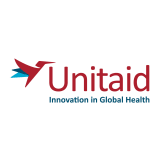
UNITAID
About
UNITAID raises money through innovative financing to shape markets for HIV/AIDS, malaria and tuberculosis in low-income countries.
The bulk of UNITAID’s resources come from a small levy on airline tickets in several countries, while the rest is provided primarily by multi-year contributions from governments. This long-term and predictable stream of funding allows UNITAID to provide incentives for manufacturers to supply quality public health products at a reduced price and bring new formulations to market.
UNITAID complements the work of other global health agencies by targeting underserved markets such as paediatric HIV treatments or cutting-edge diagnostic tools. Funds are then strategically channelled to correct shortcomings in these markets through UNITAID’s implementers on the ground. Implementers ensure that those in need have access to improved and affordable products. They then report to UNITAID on the public health impact of their actions and use of the funds.
UNITAID was established in 2006 by the governments of Brazil, Chile, France, Norway and the United Kingdom. Today it is backed by a formidable “North-South” membership, including Cyprus, Korea, Luxembourg, Spain and the Bill & Melinda Gates Foundation alongside Cameroon, Congo, Guinea, Madagascar, Mali, Mauritius and Niger. Civil society groups also govern UNITAID, giving a voice to non-governmental organisations and communities living with HIV, malaria and tuberculosis.
Based in Geneva and hosted by the World Health Organization, UNITAID has been entrusted by these members to use innovative financing– the world’s first “solidarity contribution” – for innovative impact.
Type of organization



In the News
Company Offices
- Switzerland (headquarters)
- Geneva
- World Health Organization 20, avenue Appia CH-1211